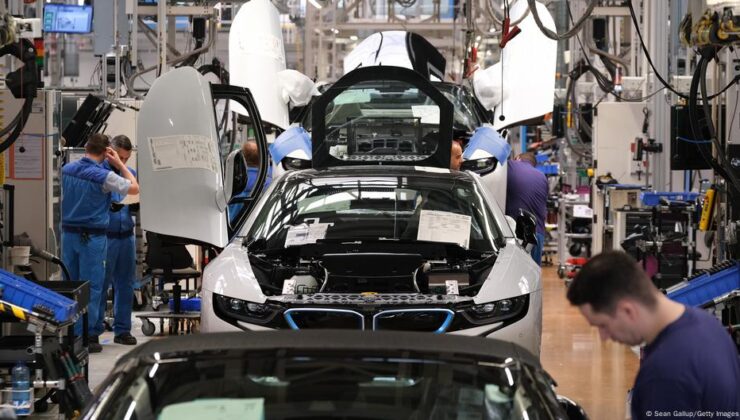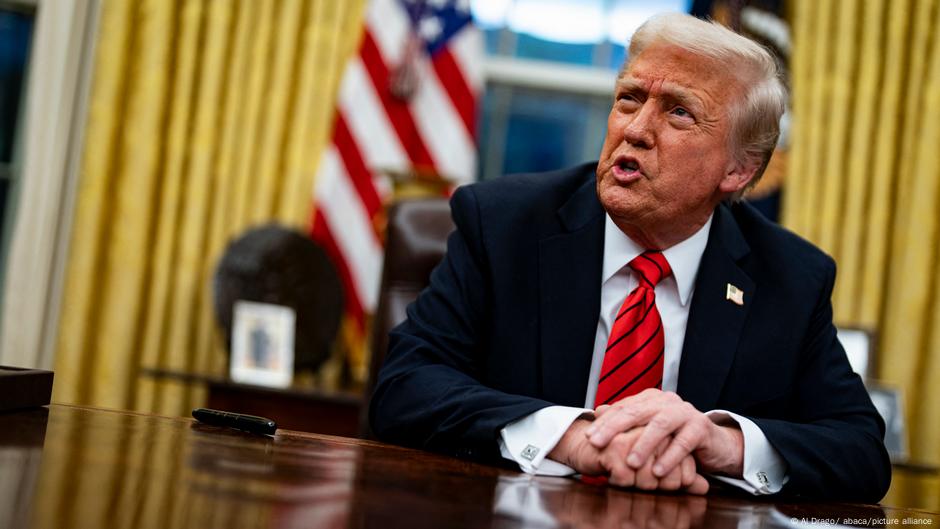

Following his re-election, President Donald Trump resumed office on January 20, 2025, with a firm stance on economic protectionism. Despite previous indecision, the administration announced a 25% tariff on imported vehicles, effective April 2, 2025, signaling potential future tariffs on other sectors like pharmaceuticals.
President Trump asserts these tariffs will generate $100 billion in revenue, a figure contested by Canadian economist Paul Ashworth. Ashworth, specializing in North American economics, predicts revenues closer to $50 billion. He warns of immediate price hikes, turning new vehicles into a luxury item, with ripple effects inflating second-hand car prices and repair costs. In response, Ferrari has already declared a 10% price increase on certain models for the US market.

The German automotive industry, particularly Volkswagen, Mercedes-Benz, BMW, and Porsche, faces significant challenges. The US, their primary market after China, is crucial for these manufacturers. Porsche, with no production facilities in the US, is particularly vulnerable, having recently shifted its primary market focus from China to the US. Bloomberg predicts these tariffs could erase Porsche and Mercedes-Benz’s profits by 2026, forcing them to consider price hikes or relocating production.
In 2024, German-made vehicles worth approximately $202 billion were imported into the US, per the Department of Commerce. The new tariffs threaten to reduce German automakers’ market share, impacting not only major manufacturers but also suppliers like Continental and Bosch.
Following the tariff announcement, shares of German automakers like Porsche, Mercedes, and BMW fell by around 5% in Frankfurt, with Volkswagen AG experiencing a 4% decline. These developments impacted major indices such as the DAX, MDax, and EuroStoxx50, each dropping over 1%.
Hildegard Müller, President of the German Automotive Industry Association (VDA), criticized the tariffs as a setback for free trade, warning of severe disruptions to companies and supply chains, affecting consumers in both Germany and the US.
Dirk Jandura, President of the German Wholesale and Foreign Trade Association (BGA), indicated a downward revision of export expectations, urging the EU to retaliate against US trade policies, especially targeting American digital monopolies in Europe.

Monika Schnitzer, head of the German Council of Economic Experts, advised the EU to negotiate without concessions, potentially introducing retaliatory tariffs. While the broader economic impact may be limited, Schnitzer emphasized the severe consequences for specific sectors.
Moritz Schularick, President of the Kiel Institute for the World Economy (IfW), recommended patience, highlighting the importance of cooperation with other nations supporting open markets. While the full impact of the tariffs remains uncertain, negotiations are expected to adjust their implementation and scope.
DÜNYA
7 gün önceSİGORTA
10 gün önceSİGORTA
10 gün önceSİGORTA
10 gün önceSİGORTA
10 gün önceSİGORTA
11 gün önce 1
Minnesota’s Proposed Lifeline Auto Insurance Program
9250 kez okundu
1
Minnesota’s Proposed Lifeline Auto Insurance Program
9250 kez okundu
 2
Introducing Vivo Y300 Pro+: A Blend of Power and Affordability
7232 kez okundu
2
Introducing Vivo Y300 Pro+: A Blend of Power and Affordability
7232 kez okundu
 3
Elon Musk’s Father: “Admiring Putin is Only Natural”
5715 kez okundu
3
Elon Musk’s Father: “Admiring Putin is Only Natural”
5715 kez okundu
 4
American Nurse Survives Harrowing Moped Crash in Thailand
2117 kez okundu
4
American Nurse Survives Harrowing Moped Crash in Thailand
2117 kez okundu
 5
Manchester City’s Upcoming Restructuring Phase
1225 kez okundu
5
Manchester City’s Upcoming Restructuring Phase
1225 kez okundu
Veri politikasındaki amaçlarla sınırlı ve mevzuata uygun şekilde çerez konumlandırmaktayız. Detaylar için veri politikamızı inceleyebilirsiniz.
Bu sayfanın içeriğini kopyalayamazsınız